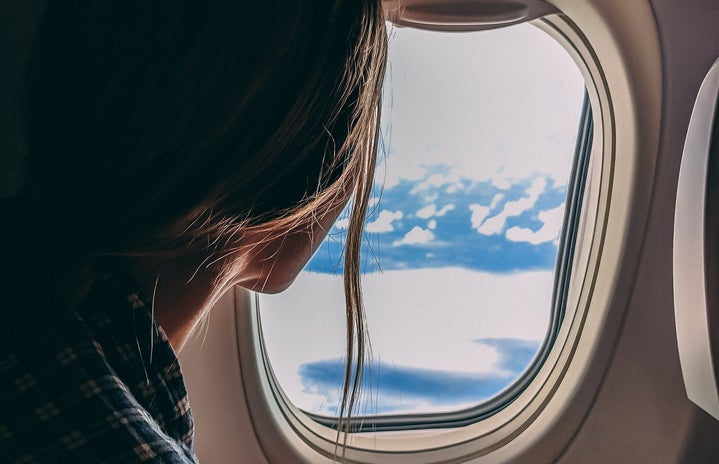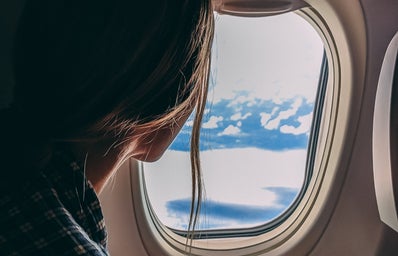Students enrolled in schools across the US have had their education come to a standstill as COVID-19 spreads across the globe. It started just over a month after the new Coronavirus was first identified, with programs taking place in China being the first to go. South Korea, Japan, Iran and Italy followed, and many programs in surrounding European countries, like the Netherlands, are being called off, too. Some students hadn’t even begun their programs yet, while others are now scrambling to figure out what to do in the middle of their coursework.
Some governors, like Massachusetts’ Charlie Baker, have encouraged their Higher Education Institutes to suspend their study abroad programs, and while even the CDC hasn’t required it at this point, many universities had already acted on their own to bring their students home. The problem is that many students, even now that they’re home, still haven’t received clear guidance on how to proceed. Few universities are in sync with each other, and many assured their students abroad that their programs wouldn’t be affected by the outbreak; even those in hot zones–where other programs had already been dismissed–and others in less affected–or even unaffected, at the time–countries never expected to be sent home, yet announcements rolled in throughout the end of February and the beginning of March, giving students we spoke to anywhere between March 2 and March 12 to vacate their student-sponsored housing, at a minimum. With these unprecedented suspensions, how are college students fairing in the wake of the loss of an experience that so many spend years planning for?
The process for students returning home has been unclear and, for some, felt unsafe
Elizabeth Berry, a student at Connecticut College, was enrolled at the University of Bologna through Brown University’s Brown in Italy program. She and a friend weren’t required to return home, but feared not being able to find a direct flight later, or being quarantined in another European country. The two were able to secure a more than half-empty flight from Rome to Boston. “I was only asked where I was coming from, [if] I [was] sick, and [if I’d] been in contact with anyone who [was] sick,” Elizabeth says of coming through customs. However, at the time, Brown and Connecticut College both required all returning students to self-quarantine for 14 days before they’d be allowed back on campus, requiring a doctor’s note to confirm they’re symptom-free.
Nicole DeMarco, a student enrolled at Fashion Institute of Technology (FIT) in New York City, was studying in Florence. She was originally told that she’d be boarding a chartered flight to Fort Stewart, though at the time, they weren’t given any information beyond being told to pack and ship their belongings home, get out of their leases and prepare for quarantine. Her flight ended up landing at JFK instead of Fort Stewart, where they arrived in a hangar with their belongings waiting on the floor and a few customs agents ready to check their passports. “From there, there were two buses–one to return students to their parents [if they were going to self-isolate at home], and another headed to dorms for quarantine,” Nicole says. “For all of my friends, unfortunately, they had to sit on the bus for an eight hour drive to the college of Brockport in Rochester, where they arrived at 4:30am.” They’re being quarantined in an isolated dorm, but Nicole says her friends are being very well taken care of. “The staff helping them is amazing, and will get them whatever they need. Even though it’s upsetting that they’re even isolated from each other, SUNY Brockport is doing everything they can to comfort the students, including providing mental health support.”
Camden Carpenter was supposed to travel to a variety of European cities this summer as part of a travel course. She’s seen others returning home from their current programs, and isn’t sure her school, Virginia Tech, has acted appropriately. “I don’t think that they’ve handled precautionary measures well; students coming back into the country should be tested immediately and have proof that they are not a carrier of the virus, but [the school’s email] contains no mention of a regulatory process to ensure newly-arrived students have self-quarantined. It is concerning that Virginia Tech is giving students the benefit of the doubt in hoping that they self-quarantine, because that cannot be guaranteed,” she says.
Some students have received refunds in full for their lost time, but others are facing total loss
Brown has agreed to refund travel costs for students returning home unexpectedly. Students completing their abroad studies online will receive refunds for their housing, but full refunds will be given to students who choose to withdraw entirely from the program, according to Elizabeth, who has chosen to withdraw.
Nicole Chiaverini, a student at Virginia Tech, was studying in Florence, Italy. She also wasn’t required to return home, though chose to, so as not to waste the semester. “If I [chose] to stay it would be for ‘personal travel’, meaning they wouldn’t accept my transfer credits from FUA,” she says. Even so, she says Virginia Tech was extremely helpful in ensuring she stayed healthy and safe during the time she was arranging her travel plans. “They assured me that if I ended up getting ‘stuck’ somewhere, they would work with the government and embassy to have a plan to have me evacuated, which did give me a sense of comfort that they were looking out for me and my safety–not that I didn’t think they would.”
Virginia Tech did create a form that affected students could fill out to request a refund for reasonable, increased travel costs, like rebooking flights. Nicole C is hopeful that those fees will be returned to her, but while her study abroad program, SAI, has promised to do what they can to refund whatever they can, they’re unable to guarantee that any of her program fees–like the housing she is no longer living in–will be refunded at this time.
Nicole D’s situation was also out of FIT’s hands. “SUNY handled it well, though,” she says. “As best as they could for how upsetting and stressful of a situation it was. The students in quarantine are being checked by a nurse daily, and from home both FITNYC and my county’s Department of Health have contacted me to check on me and offer support.” Her airfare and transportation home was covered by the state of New York, but her tuition and housing in Italy hasn’t yet been addressed. “We had to break our leases in Florence, so a lot of students lost their security deposits/next month’s rent. We are still waiting to see if [the state] will be willing to refund those heavier bills.”
Siena College student Jessica Dery was studying in Siena, Italy. She says Siena was constantly in touch, keeping them up to date on all new information and decisions. “There wasn’t much to help with in terms of booking flights,” she says, “but all the staff at Siena Italian Studies helped us through that process.” Siena has agreed to credit their student accounts with half of their room and board since they were sent home halfway through the program.
Meanwhile, Naina Asthana, a Rutgers University student who was studying at John Cabot University in Rome, Italy, was only offered a booking agent as help from her school, but says it was impossible to reach them.
Molly Bleaker*, a student at the University of Minnesota, was studying in Milan, Italy. “I know they said that if anyone couldn’t afford to book a flight home it could be charged to their student account to pay at a later date. It was frustrating to see that many of my study abroad friends’ schools were reimbursing students for their flights home since it was not our call to go home.” Molly is also frustrated by the lack of communication about refunding the program. “We get many emails a week saying that they are ‘working on the financial aspect’ but there has been absolutely no communication as to what that even means,” she says. “If I wanted to live with my parents again and take online classes, I could’ve done it for a tiny fraction of what we paid to study abroad. It feels like I’ve been robbed of both money and the experience of a lifetime,” she says.
Students have mixed feelings about their universities’ roles
Elizabeth expressed her frustration with the way the universities have handled the situation. “They’ve been slow to reply to emails and have left all of us hanging,” she says. “I understand this is a very complicated time with many hard decisions to be made, but even an email saying so and informing us that we will soon have…more information would be more helpful than silence.” Overall, Elizabeth feels sad, angry, and disappointed about what’s happened.
Nicole and Jessica both appreciate how their schools tried to make it work. For Jessica, lots of schools had already been sent home by the time Siena made a decision. They shared information as they knew it, and Jessica thinks they handled it well for never having dealt with a situation like this before. Nicole says that FIT also wanted them to be able to stay as much as the students did, but that left their hands when SUNY schools were required to withdraw their students. Even so, Nicole is happy that they came home when they did. “We were barely days away from [potentially] being trapped as part of Italy’s lockdown and the travel ban from Europe,” she says.
Molly’s university has been very caring, aside from the lack of information about refunds. “It’s hard to be critical towards the university regarding such an unprecedented situation. It’s not anyone’s fault this happened, but I do think they could improve on timely decisions and communication. It’s felt like an eternity since I found out my program was being cut short, and we haven’t been told anything regarding what this means for us, besides that we can finish classes online,” she says.
Overall, Nicole C and her family are all happy with Virginia Tech’s part in this situation. “It was very apparent that even though I was only one out of hundreds of students studying abroad that they were concerned about my personal safety and well-being,” she says. “I was able to talk with the head of our global education office, who helped answer all of my questions and [made] sure I had all of the information I needed regarding the situation and virus itself.” Camden, too, is pleased that the situation was addressed sooner rather than later for her, as it saved many people from potentially losing their fees and other program expenses. For Camden’s program specifically, her non-refundable deposit was returned.
When faced with an impossible situation, schools had to make a tough call to keep their students safe. There’s rarely a solution that can please everybody involved, but most students are able to see past the pain of their interrupted experiences and are trying to bear with their universities as they all navigate uncharted territory.
*Name has been changed


